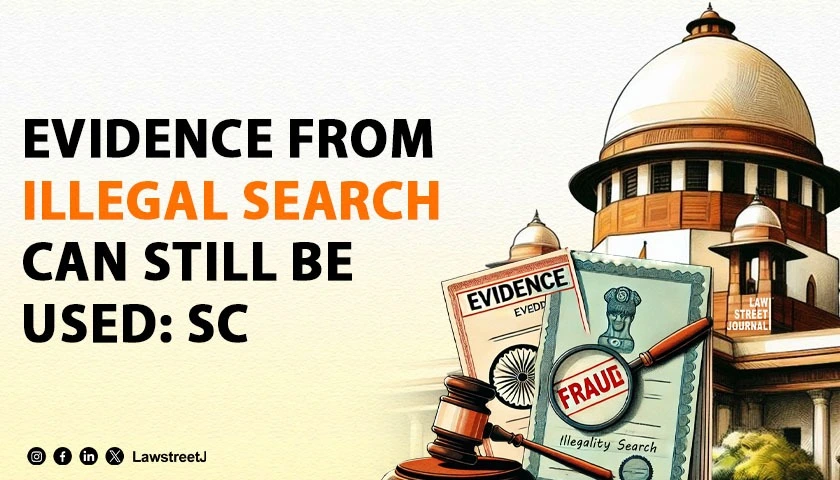The Karnataka High Court on September 13, 2019, in the case of HIP Bar Pvt. Ltd. v. State of Karnataka, has held that online sale of liquor cannot be allowed in the absence of enabling provision under the Karnataka Excise Act, 1965, to grant such license or permission.
A Single Judge Bench of Justice S. Sujatha was hearing a writ petition filed by a company, offering a Semi-Closed Prepaid Payment Instrument (Mobile Wallet) to its customers among other services.
The Reserve Bank of India (RBI) had issued a certificate of Authorization to the petitioner for operation, under the Payment and Settlement Systems Act, 2007, which is valid till September 30, 2021. On August 1, 2017, Letter of Authority was issued by the respondent for Online Order Processing and Delivery of Indian and Foreign Liquor including Beer, Wine and LAB (Low Alcoholic Beverages) to Hip Bar with certain conditions.
It was alleged by the petitioner that pursuant to news reports in a channel, the LOA was withdrawn abruptly without providing an opportunity to show cause. The petitioner was compelled by the respondent to give an affidavit stating that it has disabled the online delivery of liquor, without prejudice to its rights. Being aggrieved, company moved the High Court seeking declaration that it does not require any license or permission to conduct business of Online Order processing and Delivery of Indian and Foreign Liquor including Beer, Wine and Low Alcoholic Beverages ("LAB").
Arguments
Learned Senior counsel P. Chidambaram, appearing for the petitioner mainly raised three grounds:-
- Firstly, cancellation of Letter of Authority without issuing show-cause notice is against the principles of natural justice and is void ab initio.
- Secondly, no Letter of Authority was required for carrying on the business under the provisions of PSS Act and RBI Regulations. Indeed, no application has been filed by the petitioner for grant of Letter of Authority. Letter of Authority, if any issued has no effect in the eye of law.
- Thirdly, it was submitted that the action of the respondent - Authority interfering with the business transaction of the petitioner is wholly arbitrary and in breach of the fundamental rights guaranteed under Articles 14 and 19(1) (g) of the Constitution of India. Neither sale of liquor is totally prohibited nor monopoly is taken by the State in the State of Karnataka.
Learned Advocate General for the State, on the other hand argued that the writ petition is misconceived. No fundamental right is vested with the petitioner to carry on trade / business in liquor, no writ of mandamus can be issued against the petitioner. It is the contention of the State that the transaction of the petitioner is trade /business in liquor. There is no provision under the Act, for conducting the business on prepaid instruments for alcoholic beverages. Petitioner using the mobile application initiates the transaction of purchasing the liquor from CL-2 customer and transports / delivers to the end consumer. In this scenario, it is clear that the petitioner sells the goods-liquor to the end consumer and gets the profit.
Judgment
On the petitioners argument that his Fundamental right to do business is violated, the court observed that "The fundamental right to carry on the present business claimed by the petitioner on the premise i.e., sale of liquor is not res extra commercium and the right under Article 19 (1) (g) of Constitution exists is not absolute but subject to the State permitting to undertake the business. Business of liquor stands on a different footing from other trades, the State possesses the right of control over all aspects of intoxicants. Imposing fetters or restrictions by the State is mandatory though there is no prohibition policy in the State. In such circumstances, a right is vested with the State to monitor, regulate, and prevent from conducting the activities / trade in liquor. Any such restriction imposed to achieve the laudable object of the Act, cannot be termed as an infringement of fundamental right guaranteed under Article 19(1) (g) of the Constitution of India."
As regards whether the petitioners transaction amounted to sale of liquor the court said "In terms of Act, "any" transfer otherwise than by way of gift being 'sale', the transaction of the petitioner certainly comes under the term 'sale', as such the provisions of the Act, 1965 are applicable."
Further, the court held that possessing and transporting of liquor by the petitioner to various end customers is not saved under Rule 21 of the Excise (Possession, Transport, Import and Export) Rules, 1967.
On the point of Revocation of LOA, the court held that the letter of authority which was firstly issued and then revoked was not in conformity with the provisions of the Act. On realising the mistake, the same has been withdrawn at its own discretion in the interest of the state holders and public at large. Source of power to issue LOA is not traceable to any provisions under the Act.
Thus, dismissing the writ petition, the court concluded that The petitioner is not entitled to carry on business of online order processing and delivery of liquor to the consumers in the State of Karnataka in the absence of enabling provision available under the Karnataka Excise Act, 1965 to grant such licence or permission.








